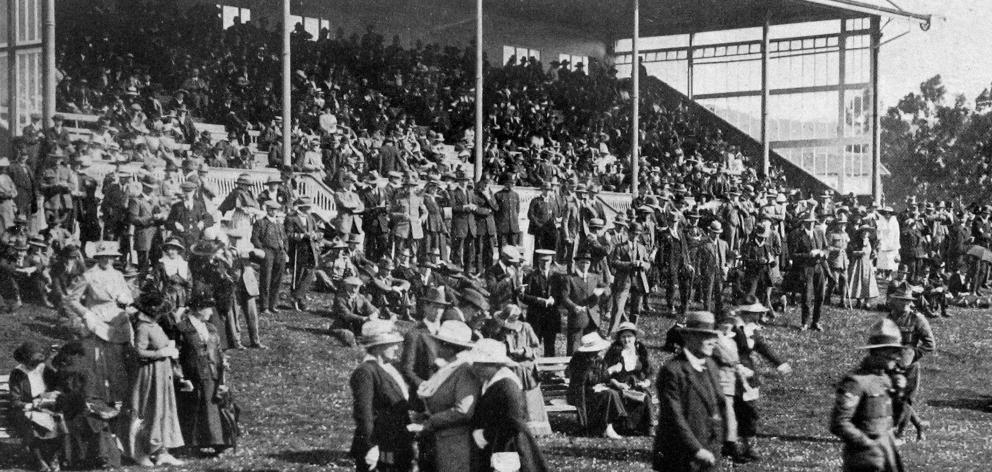
He said the board now had a list of the books required, and it was its duty to make the books as cheap as possible to the parents. In many country schools it is difficult to procure the books as they were wanted, and the cost sometimes came to as much as 50 per cent. more than in town.
He thought the proper course would be for the board to indent the books and store them for issue as applied for by head masters. The board should become the source of supply for all school books and school requisites. He had heard of only one objection to this scheme, and it was from a bookseller, who said he would be seriously affected.
The answer was that the board might take over such a stock at a reasonable advance on cost price, or give eight to 10 months for the selling off of the held stock. He thought they should also standardise school stationery, as had been done with school books, and list everything at fixed prices, so that applicants would know exactly how much money to remit.
Celebratory holidays
At yesterday's meeting of the Otago Education Board, the chairman (Mr J. Wallace) reported on the question of arrangements for school holidays suitably to celebrate military successes.
Mr Wallace stated that the matter had been fully discussed at a conference between the town members of the board and the head masters of the city and suburban schools, and it had been decided to recommend that if news of any Allied successes of importance should come to hand in the forenoon of a school day, and the bells should be rung, the teachers suitably address the children and give them a half-holiday from noon.
If the news should not arrive until the afternoon the children should be addressed and dismissed for the remainder of the day. The schools in the country should make arrangements to suit the conditions prevailing in the particular district.
Southland coal mines
Mr A. S. Gillanders (mine manager, Kaitangata), acting for the Southland Education Board, returned home on Saturday after a tour of inspection of the board's coal-bearing properties held under lease by various mining bodies for coal-producing purposes.
Mr Gillanders stated that though there were quite a number of mines in the district visited - several of them capable of placing a good supply of coal on the market - the mines were not all working full time.
This condition also applied to some parts of the Otago districts, and it would seem that consumers had secured full supplies before the prices of coal advanced, or that the present high prices compelled consumers to be more careful of their fuel.
Duck quacks echo
One of the inmates of an Oamaru suburban house recently discovered seven ducks' eggs in one of the adjacent paddocks and a practical joker in the house hid them away in a cupboard near the chimney, and forgot all about them.
Some weeks after mysterious infantile quackings were heard in the room. It was found that the heat of the chimney had acted as an incubator and brought out seven fine ducklings.
- ODT, 18.10.1918
COPIES OF PICTURE AVAILABLE FROM ODT FRONT OFFICE, LOWER STUART ST, OR WWW.OTAGOIMAGES.CO.NZ












